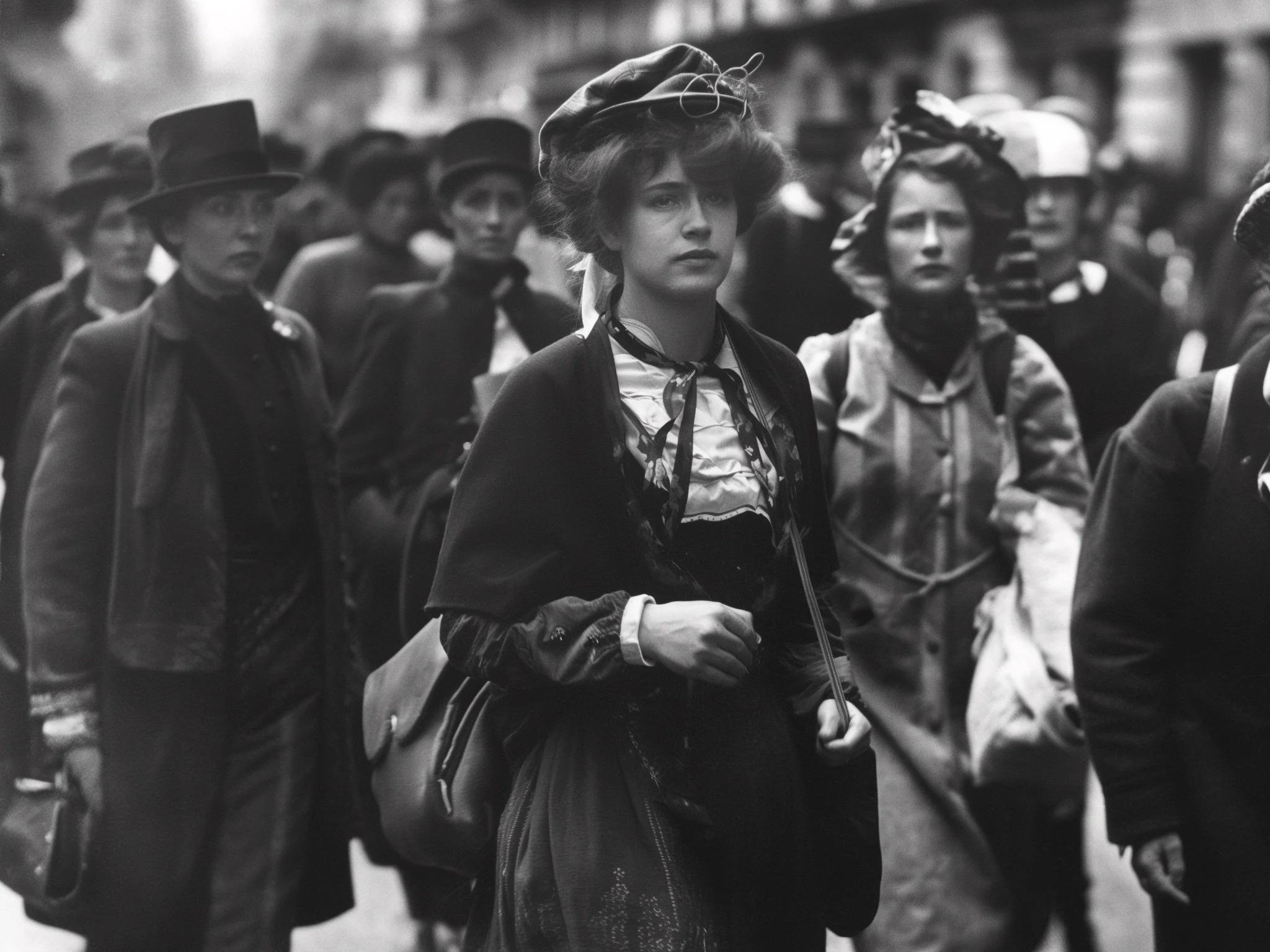The History of Voting Rights in the United States
From America's founding, when only white, property-owning men could vote, to today's ongoing campaign for truly universal suffrage, the story of voting rights in America is one of gradual expansion, forged through tireless activism. At each stage, those in power have resisted extending voting rights to new groups, using strikingly similar arguments: claims of incapacity, assertions that the excluded are adequately represented by others, and warnings about the dangers of expanding the franchise.
As we advocate for youth voting rights today, we stand on the shoulders of those who fought to extend the franchise to people of color, women, Native Americans, and others. Their victories remind us that positive change is possible, while their struggles highlight how challenging it can be to achieve truly representative democracy.
Timeline: Key Moments in the March Toward Universal Suffrage
Pre-Revolutionary Period (Before 1776)
- Voting was generally restricted to white male property owners
- Many colonies imposed religious tests, barring Catholics and Jews from voting
- Property requirements meant only 40-50% of white men could vote in some areas
Revolutionary Era and Early Republic (1776-1828)
- 1776: Declaration of Independence declares "all men are created equal" but voting remains restricted
- 1787: U.S. Constitution leaves voting rights largely to states
- 1790: The Naturalization Act restricts citizenship to "free white" immigrants
- States gradually begin eliminating property requirements for white men
Era of "Universal White Male Suffrage" (1828-1868)
- By 1856, all states had eliminated property requirements for white men
- Some states that previously allowed free Black men to vote revoke these rights
- Native Americans explicitly denied citizenship and voting rights
- Women's suffrage movement begins gathering momentum
Post-Civil War and Reconstruction (1868-1877)
- 1868: 14th Amendment grants citizenship to "all persons born or naturalized in the United States"
- 1869: Wyoming becomes first state to grant women voting rights
- 1870: 15th Amendment prohibits denying voting rights based on race
- Brief period of Black political participation in the South
Era of Disenfranchisement (1877-1920)
- Southern states implement Jim Crow laws that restrict voting rights including:
- Literacy tests
- Poll taxes
- Grandfather clauses
- Violence and intimidation
- Native Americans still denied citizenship
- Women continue fighting for suffrage, with 15 states granting women the vote by 1919
Early 20th Century Reform (1920-1960)
- 1920: 19th Amendment grants women the right to vote
- 1924: Indian Citizenship Act grants citizenship to Native Americans
- 1943: Chinese Exclusion Act repealed
- 1957: The new Civil Rights Act, the first since Reconstruction, establishes new government mechanisms to address infringements on voting rights
Civil Rights Era (1960-1971)
- 1961: 23rd Amendment gives Washington, D.C. residents right to vote for president
- 1964: 24th Amendment bans poll taxes
- 1965: The Voting Rights Act outlaws discriminatory voting practices
- 1971: 26th Amendment lowers voting age to 18
Modern Era (1971-Present)
- 1975: Voting Rights Act expanded to protect language minorities
- 1993: Motor Voter Act makes registration easier
- 2013: Supreme Court weakens Voting Rights Act in Shelby v. Holder
- 2021: 125 members of Congress vote to lower voting age to 16
The Next Frontier: Youth Voting Rights
Today's movement for youth voting rights echoes previous struggles for electoral inclusion. Just as opponents once claimed women lacked the capacity to vote or that African Americans were adequately represented by white voters, today's critics suggest young people are too inexperienced or already represented by their parents.
And as with previous movements, youth suffrage advocates are exposing these arguments as hollow justifications for excluding millions of citizens from our democracy. In general, young people:
- Meet the minimum benchmarks we have established for voting capacity (embodied in our rules for removing an adult's right to vote)
- Have valuable experience with pressing issues facing our country
- Are directly affected by government decisions and live with the consequences far longer than older voters
- Have demonstrated their political engagement through activism and organizing
- May work and pay taxes
- Bring vital perspectives currently missing from our political discourse
The history of voting rights in America teaches us that democracy works best when it includes all voices. As we work to extend voting rights to young people, we honor the legacy of previous suffrage movements while writing the next chapter in America's long journey toward truly universal suffrage.
Looking Forward
As we push for change, we draw inspiration from the words of Susan B. Anthony:
"The moment you deprive a person of his right to a voice in the government, you degrade him from the status of a citizen of the republic to that of a subject."
Young people today are subjects, not citizens. The time has come to change that.




